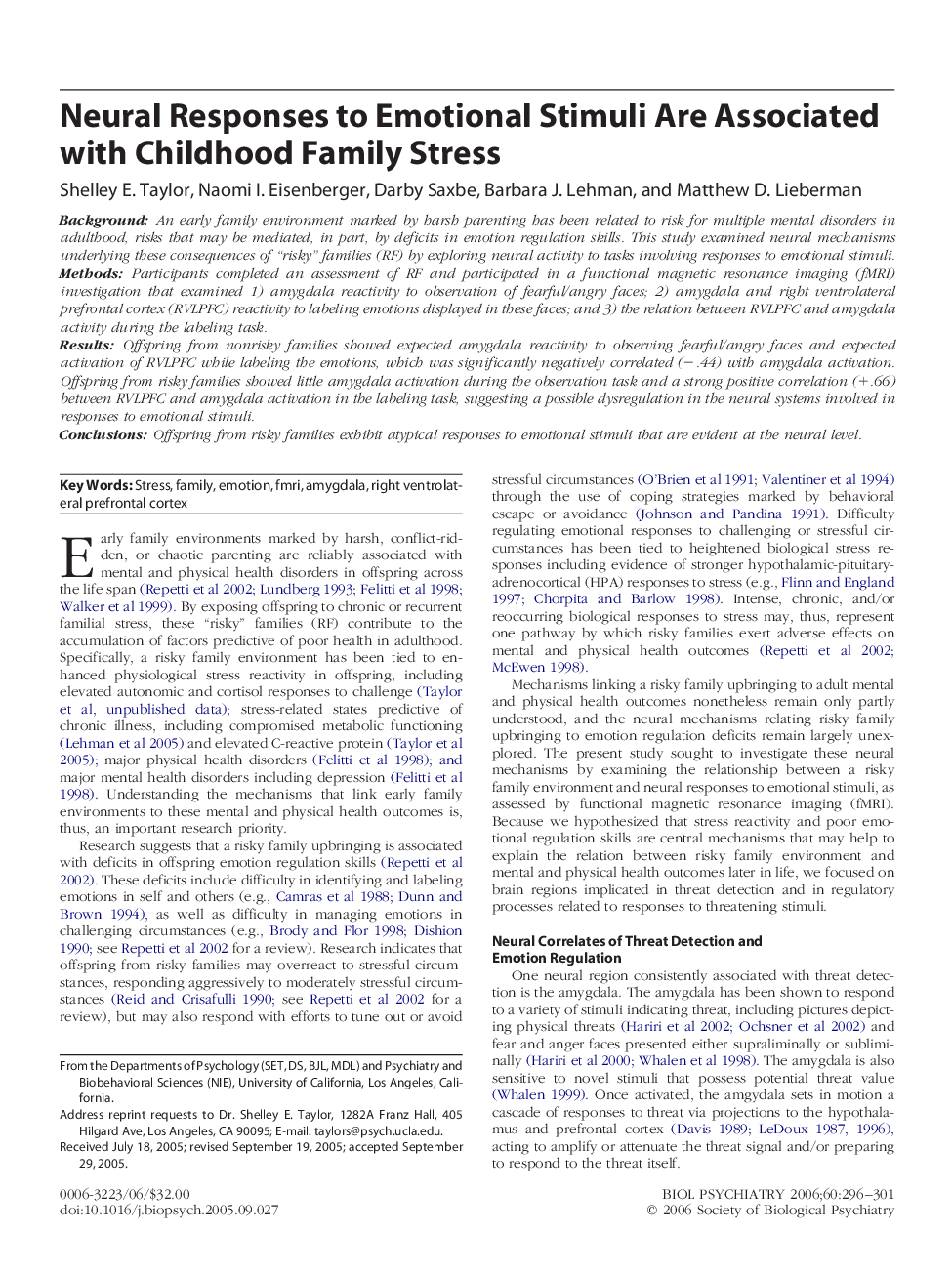| Article ID | Journal | Published Year | Pages | File Type |
|---|---|---|---|---|
| 4180071 | Biological Psychiatry | 2006 | 6 Pages |
BackgroundAn early family environment marked by harsh parenting has been related to risk for multiple mental disorders in adulthood, risks that may be mediated, in part, by deficits in emotion regulation skills. This study examined neural mechanisms underlying these consequences of “risky” families (RF) by exploring neural activity to tasks involving responses to emotional stimuli.MethodsParticipants completed an assessment of RF and participated in a functional magnetic resonance imaging (fMRI) investigation that examined 1) amygdala reactivity to observation of fearful/angry faces; 2) amygdala and right ventrolateral prefrontal cortex (RVLPFC) reactivity to labeling emotions displayed in these faces; and 3) the relation between RVLPFC and amygdala activity during the labeling task.ResultsOffspring from nonrisky families showed expected amygdala reactivity to observing fearful/angry faces and expected activation of RVLPFC while labeling the emotions, which was significantly negatively correlated (−.44) with amygdala activation. Offspring from risky families showed little amygdala activation during the observation task and a strong positive correlation (+.66) between RVLPFC and amygdala activation in the labeling task, suggesting a possible dysregulation in the neural systems involved in responses to emotional stimuli.ConclusionsOffspring from risky families exhibit atypical responses to emotional stimuli that are evident at the neural level.
